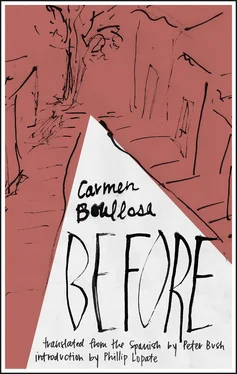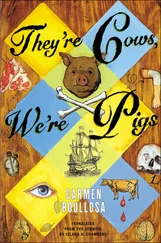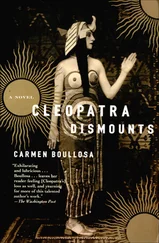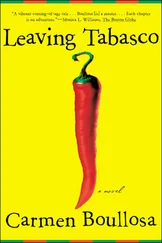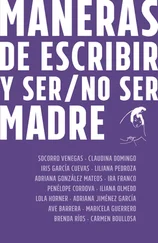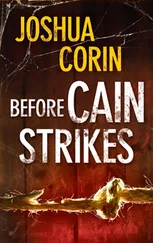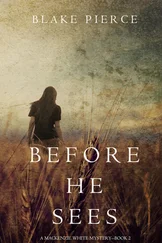Carmen Boullosa - Before
Здесь есть возможность читать онлайн «Carmen Boullosa - Before» весь текст электронной книги совершенно бесплатно (целиком полную версию без сокращений). В некоторых случаях можно слушать аудио, скачать через торрент в формате fb2 и присутствует краткое содержание. Год выпуска: 2016, Издательство: Deep Vellum Publishing, Жанр: Старинная литература, на английском языке. Описание произведения, (предисловие) а так же отзывы посетителей доступны на портале библиотеки ЛибКат.
- Название:Before
- Автор:
- Издательство:Deep Vellum Publishing
- Жанр:
- Год:2016
- ISBN:нет данных
- Рейтинг книги:4 / 5. Голосов: 1
-
Избранное:Добавить в избранное
- Отзывы:
-
Ваша оценка:
- 80
- 1
- 2
- 3
- 4
- 5
Before: краткое содержание, описание и аннотация
Предлагаем к чтению аннотацию, описание, краткое содержание или предисловие (зависит от того, что написал сам автор книги «Before»). Если вы не нашли необходимую информацию о книге — напишите в комментариях, мы постараемся отыскать её.
Part bildungsroman, part ghost story, part revenge novel,
tells the story of a woman who returns to the landscape of her childhood to overcome the fear that held her captive as a girl. This powerful exploration of the path to womanhood and lost innocence won Mexico's two most prestigious literary prizes.
Carmen Boullosa
Texas: The Great Theft
Before — читать онлайн бесплатно полную книгу (весь текст) целиком
Ниже представлен текст книги, разбитый по страницам. Система сохранения места последней прочитанной страницы, позволяет с удобством читать онлайн бесплатно книгу «Before», без необходимости каждый раз заново искать на чём Вы остановились. Поставьте закладку, и сможете в любой момент перейти на страницу, на которой закончили чтение.
Интервал:
Закладка:
Carmen Boullosa
Before
To José María Espinasa,
to Jonás Aguirre Liguori, when you were still unborn
to María José Boullosa, who I hope is resting peacefully
Those of you who felt the heart beat of night
those who through relentless insomnia heard
the shutting of a door, the echo of a distant car
a vague shuddering, a slight noise…
In the moments of mysterious silence,
when the forgotten arise from their prisons,
at the hour of the dead, at the hour of repose,
you can read these lines drenched in bitterness…
As into a glass I pour them from my sorrow
distant memories and sombre misfortunes
the sad nostalgias of my flower-drunk soul,
the mourning of my party-sorrowed heart,
The pain of not being what I should have been,
the loss of the realm that was made for me,
the thought that at one moment I might not have been,
the dream my life has known since I was born…
All this comes amid the deep silence
which night wraps around earthly illusion,
and I feel an echo as from the heart of the world
which penetrates and moves my own.
Rubén DaríoIntroduction by Phillip Lopate
Before, like Scheherezade, she produced her thousand and one novels, short stories, poems, plays, pamphlets, essay collections and literary critiques, before she wrote her historical fictions about Cleopatra, Caribbean pirates, Cervantes on the battlefield on Lepanto, and nineteenth century Texas border skirmishes, before she did her investigative reports of contemporary narco-terrorism and her rediscoveries of neglected women writers, Carmen Boullosa wrote Before ( Antes ), a haunting and haunted novella. It was brought out in 1989 by Vuelta, the publishing house founded and run by Octavio Paz. She was thirty-five years old at the time, and received the prestigious Xavier Villaurrutia Prize for this novella, and for a volume of her poems and an essay collection also published that year. You might say, however, that Before launched her, and she has been soaring ever since.
We turn to it now with the realization that there can already be found here many quintessential Boullosa stylistics and preoccupations: the rush of urgent speech, teetering between humor and panic; the agreeable pact with melancholy; the appearance of grotesque, supernatural and sensually erotic elements in everyday life; the female body as a contested site of wayward power and unrest.
On a superficial level, the book is a compendium of childhood memories, touching almost randomly on ecstasy, shame, confusion, pleasure, envy, pride — the sort of material one expects to find in an autobiographical novel by an emerging writer. But several elements render it decidedly odd. First, it purports to be told by a ghost: the narrator states that she is dead, and therefore is summoning memories from the grave — though there is very little ghostlike about her, other than this assertion. There is none of the usual attention paid in ghost stories to the mechanics of mobility or corporeality, and the narrative voice is so lively, so present, that some readers may be tempted to refuse to believe that the protagonist is in fact dead, and treat the claim solely as a metaphor (perhaps to the author’s horror), while still fully enjoying the tale. Second, the narrator keeps insisting that Esther, who is clearly her mother, is not her mother. Since she seems genuinely fond of the woman, this refusal appears, on the face of it, perverse if not inexplicable. Toward the end of the book, Esther even cries out, “Please say mom at least now!” and the girl finally relents, crying, “Oh Esther, I loved you so much, so much, Mom, Mom, Mom, Mom…” At which point the mother dies.
Why these two conceits? They might initially be seen as a deriving from an experimental mindset. Boullosa’s first novel, Better Disappeared , was an even more experimental text, and it set up the trope of Woman as in danger of being erased or negated, which is carried further along in Before . Perhaps the author, a feminist, was trying to say something about the difficulty of women asserting a self in Mexico’s patriarchal macho society. But I think there is more to it than that. Allow me to fall into the vulgar error of bringing certain personal facts about the author’s life into an analysis of a work of fiction.
Boullosa’s mother, a psychologist, died when she was 15. Not long after, her father remarried, and Carmen did not get along with her stepmother. This was a very traumatic period for her: losing her mother cleaved her childhood in two, between a “before” and “after,” you might say. It seems to me the mother’s death is central to this novella. The book begins by stressing the narrator’s fear: “my fear, my panic, my terror.” Children are often afraid, but later on in the text the narrator tells us she was not the kind of kid to be afraid of the dark, or be thrown by little disturbances: she was in fact “brave.” So this particular fear could be a presentiment, the terror of possibly losing her mother, the worst thing that could happen to a child. Turning herself into a ghost (playing dead) and refusing to acknowledge that her mother is her mother would be two ways to avoid the full impact of that grief.
The unnamed protagonist’s fear is characterized as a response to certain “noises” or, more often, “steps” that keep pursuing her, like in Cat People , that classy horror movie by Val Lewton, It could be argued that she is afraid not only of her mother dying, but of her body’s impending physiological changes. For those raised in a sexually repressive all-girls’ Catholic school, puberty can seem both catastrophic and liberating, and the blood of menstruation loom as simultaneously Gothic and normal. When the protagonist’s period finally comes, it coincides with the mother’s death, as though there were a causal link; and the narrator even expresses guilt by saying “it was my fault.” By becoming a woman, she has both emulated and competed with her mother, thereby “annihilating” her — just as, earlier, she had encroached on her artist mother’s field by doing some peculiar drawings.
Boullosa intentionally invites us to conflate her heroine with herself by having the narrator state matter-of-factly that she was born in 1954 in Mexico City, exactly as was the author. She also makes a point of insisting that “everything I’ve told you is real. I haven’t invented a single word, I’ve written my descriptions trying as much as possible to stick to the facts.” But here I think she is playing with us, fudging the meta-line between nonfiction and fiction. For starters, Boullosa gives the narrator two older, distant, chilly half-sisters, while she herself had a home packed with half a dozen younger siblings. No doubt there are many other deviations from life in the book.
More important than invention is the estranging, ritualizing angle of vision Boullosa applies to seemingly ordinary objects and mundane occurrences. Scissors pursue, eucalyptus trees sabotage, an embroidery needle pierces the maid’s hand, a turtle bleeds, red nail polish on a nipple becomes stigmata, panties get swiped while sitting on the toilet, petticoats turn up burned. “Making it strange” is of course a recognized part of the modernist aesthetic. It is also very Latin American. Though magic realism has become a tired, somewhat debased concept, one can nevertheless detect in Boullosa’s work certain correspondences with, say, Juan Rulfo’s intermingling of the living and the dead, or her friend Roberto Bolaño’s maximalist loquacity, or Borges’ rationalist love of fantasy, or Adolfo Bioy-Casares’ mastery of the novella form, or Clarise Lispector’s weird, body-obsessed stories. Boullosa’s magic is certainly more cheerful than Lispector’s: it begins as a child’s sense of wonder, then suffers loss of innocence, only to surface again as worldly re-enchantment. The heroine is no angel, and she gladly indulges in bad behavior from time to time as proof of her obstinate agency. Still, she is stunned to find that she can betray a friend so easily, or deface an expensive article of clothing for no reason. That the world is still a mystifying place, touched by the sometimes bitter, sometimes amusingly picaresque recognition of everyone’s robust capacity to act self-servingly, goes a long way toward accounting for that comic spirit which is irrepressibly present in all of Carmen Boullosa’s writing.
Читать дальшеИнтервал:
Закладка:
Похожие книги на «Before»
Представляем Вашему вниманию похожие книги на «Before» списком для выбора. Мы отобрали схожую по названию и смыслу литературу в надежде предоставить читателям больше вариантов отыскать новые, интересные, ещё непрочитанные произведения.
Обсуждение, отзывы о книге «Before» и просто собственные мнения читателей. Оставьте ваши комментарии, напишите, что Вы думаете о произведении, его смысле или главных героях. Укажите что конкретно понравилось, а что нет, и почему Вы так считаете.
